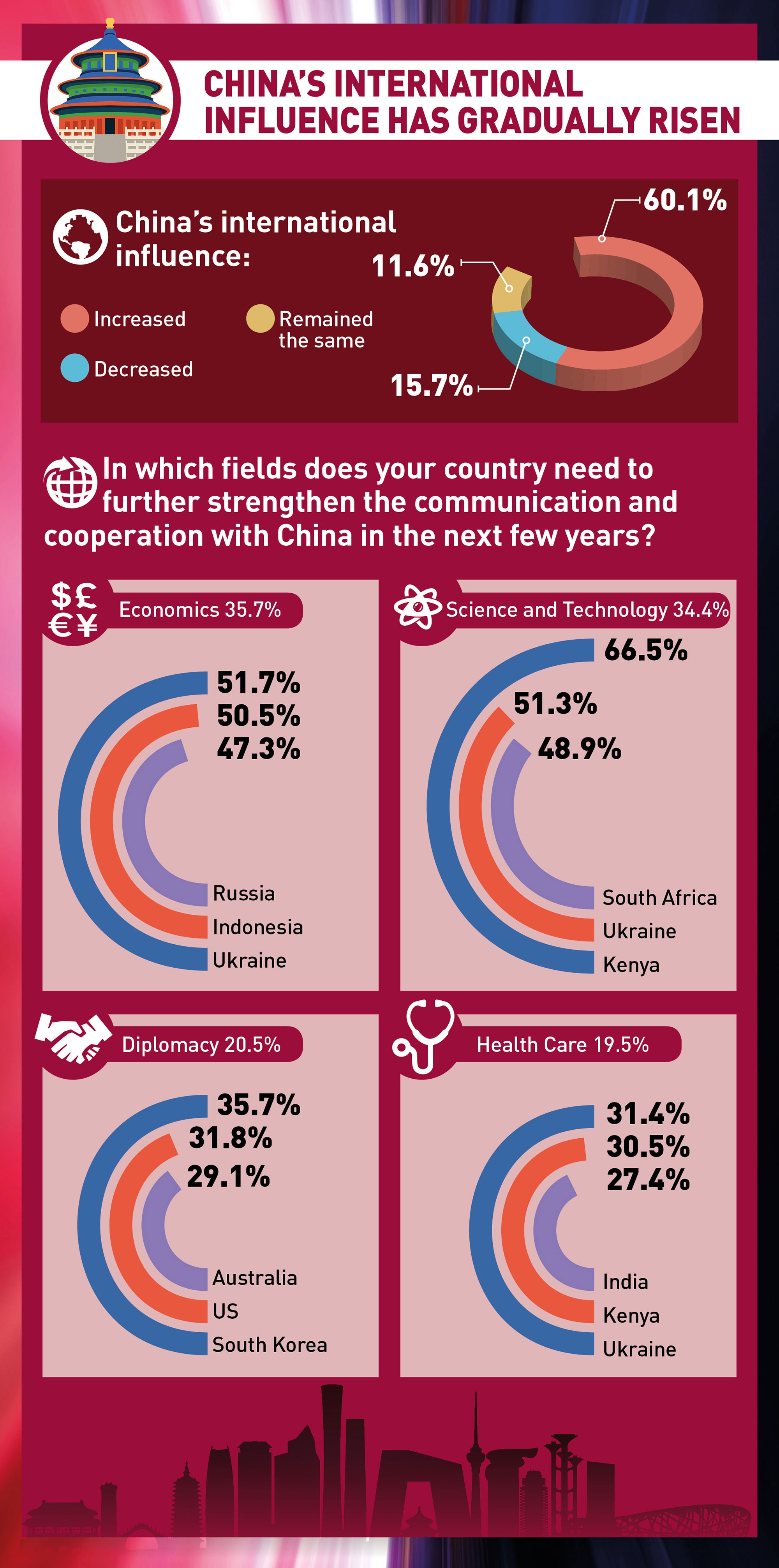China’s rising global influence recognized, more believe cooperation with Beijing should be deepened: GT poll

Infographic: GT
As the world faces rising uncertainty and unilateralism, the influence of China has been gradually recognized across the world, with more countries eyeing deeper cooperation with Beijing on several key areas, including economy, technology and healthcare, according to the latest survey conducted by the Global Times poll center.
The poll gathered 16,431 responses from 16 countries, including China, the US, the UK, France, Russia, Spain, South Korea, Japan, India and South Africa from October 23 and 30. This is the 9th annual global public opinion survey by the poll center.
Roughly 60 percent of respondents believe that China's international influence has risen in recent years, and such view is shared by a majority of those surveyed in most countries, except Japan.
More than half of Japanese respondents chose the opposite, increasing 14.3 percentage point.
When asked in which fields does your country need to further strengthen communication and cooperation with China in the next few years, 35.7 percent believe the economy should be on top of the list, followed by technology, diplomacy and healthcare.
Compared to the previous three years’ polls, the world’s expectation in cooperation with China has been enriched, and shifted from paying “excessive attention to economic cooperation.” For example, 34.4 of those who surveyed believe their countries should join hands with China on technology.
Those who pin high expectations on cooperation with China on economy, technology and healthcare are mainly developing countries, such as Ukraine, Kenya and Indonesia, while developed countries’ respondents are hoping for more cooperation with China in the diplomatic field.
The poll also asked, “If global governance needs to be led, demonstrated, coordinated, and guaranteed by one or two countries, which of the following countries would you prefer?”
31. 1 percent preferred the US, and 17.1 percent chose China. The proportion who chose the US and China increased by 4.7 percent and 3.6 percent, respectively, compared to last year.
The proportion of those who chose China has been steadily increasing in the past three years, from 11.5 percent in 2018 to 17.1 percent this year. In contrast, those who voted for the US and France has been declining.
Respondents from developing countries tend to agree more on “responsibility of superpowers,” which was defined by the poll as: major countries should take up their due responsibilities, including maintaining world peace, promoting economic development, strengthening multilateral cooperation, helping small and medium-sized countries, providing global public goods, meeting global challenges, promoting the progress of human society and so on.
More than 80 percent from countries including China, India, South Africa and Kenya agree with those responsibilities, when those from developed countries tend to be less assertive.
Germany, with only 29.3 percent agreeing with the responsibilities, ranked last.
Global Times
